When needed, a cable car, train, or bus can be a source of healing. An injury may require a little time off my feet. The dilemma is this: am I still ohenro if I board a a bus? The injury may not be extensive enough to keep me in bed for a day. I do not want to lose any forward momentum. A ride provides some healing before getting off as close or as far as I need. After all that, there still may be another hour’s walk to a temple gate.
Am I then, not ohenro?
Would Buddha or Kukai hop on the train or bus to a jump off point on the way to a temple? What would either think or do? I cannot begin to know what they might do. I know this – I did not leave my brain at home. And I did not lose my capacity to think for myself. For me, this is not a test with proctors roaming the room ready to pounce on me for cheating or somehow unfairly alleviating my suffering on the path.
I’ve observed pilgrims pondering on the path: what would Kukai do? Almost always, the answer is to do the thing that brings more suffering. I am sure it creates a little resentment in the person asking. The alternative is just as valid. I say be gentle with yourself. Think for yourself. Buddha or Kukai just may be driving that bus or train. You will want to get on board. 🕉️
Ride with me.
Cable car dance
A car is travelling in the opposite direction!
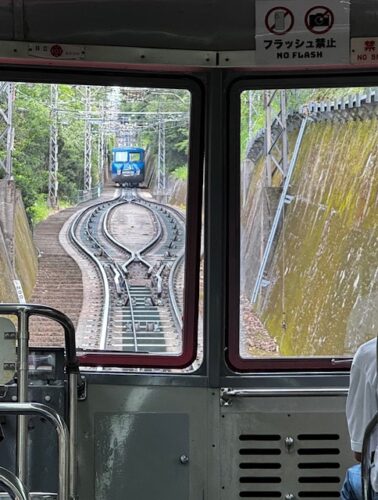
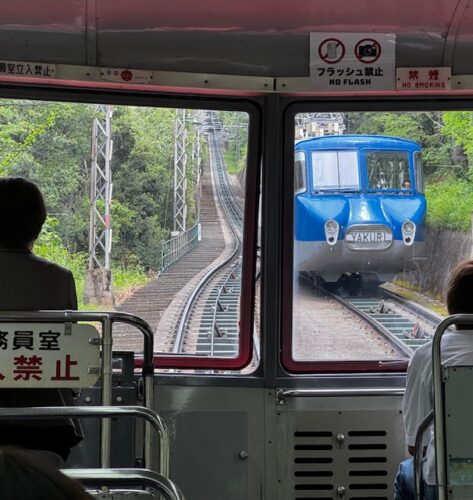
A fellow ohenro who decided to ride the cable car is seated ahead.
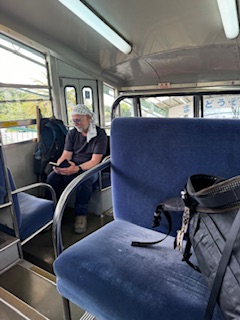
Let’s walk to the temple.
85 Yakuri-ji
Temple of the Eight Chestnuts
The name of the mountain is, Gozenkan, which means, “Five sword mountain”.
Kukai buried eight roasted chestnuts here at Yakuri-ji. After three years in China, he returned to find them growing and thriving.
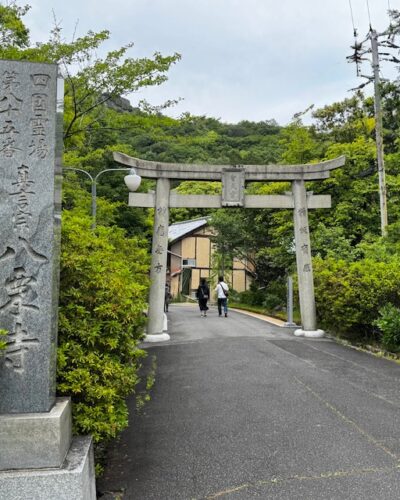
The path from the cable car stop to the temple.
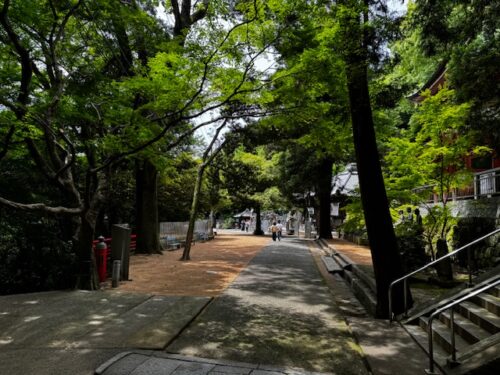
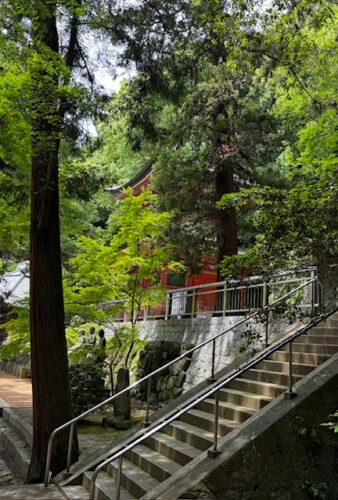
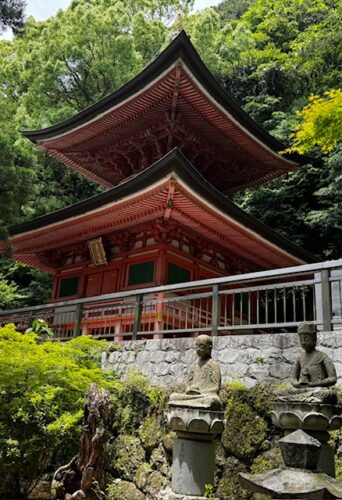
Dobo hall and Taho pagoda.
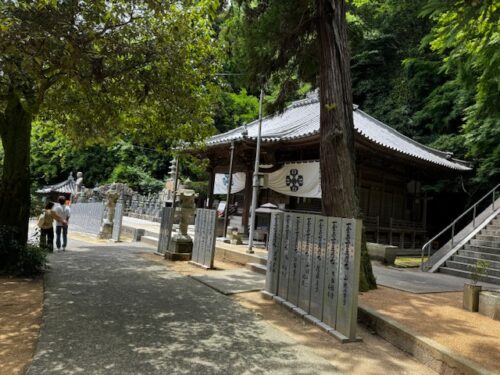
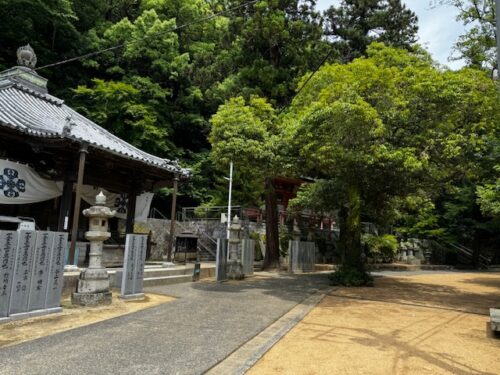
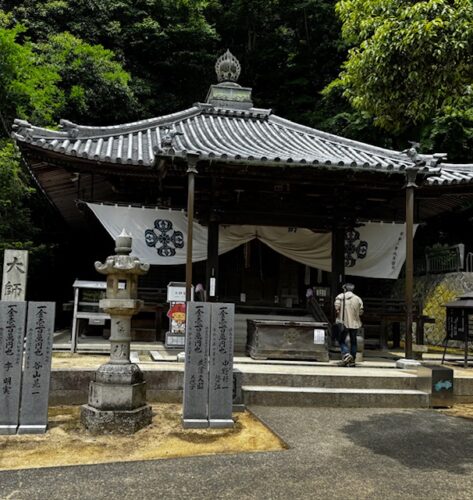
Daishi-do.
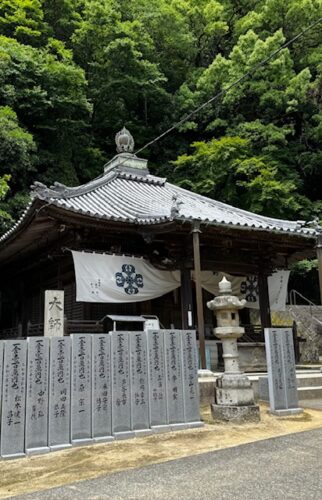
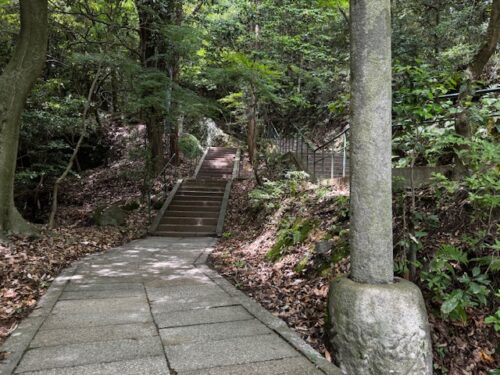
Holy Heaven
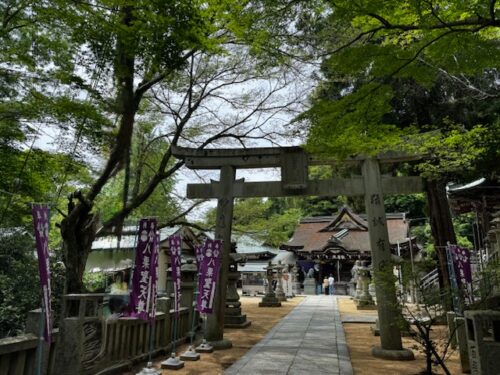
Promenade to the Holy Heaven.
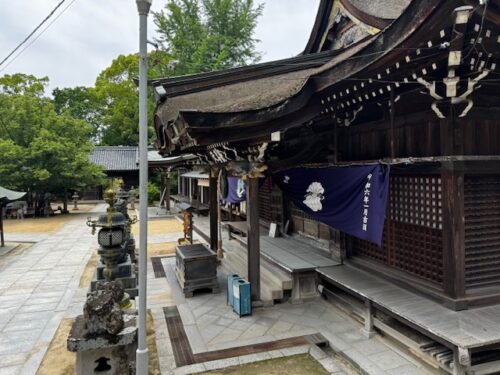
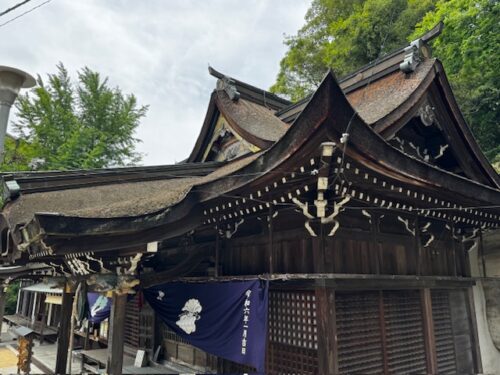
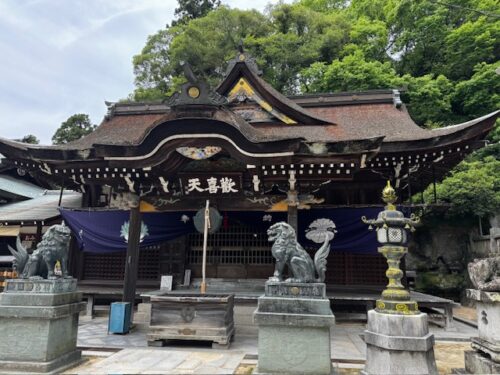
The Holy Heaven or Kankiten is known for alleviating the confusion of sentient beings and fulfilling their wishes. It is a secret Buddha, open once every 50 years. The next opening is in 2027.
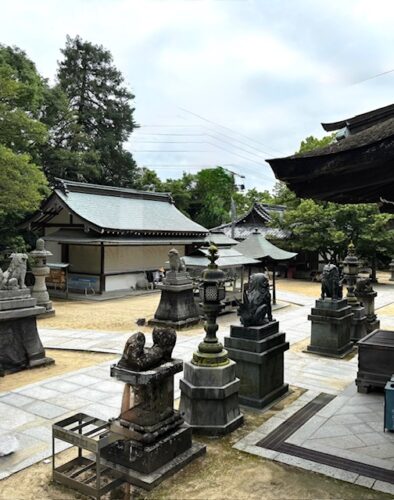
Visitors pray for business success, good relationships, peace of illness, long-lasting good luck, and long life.
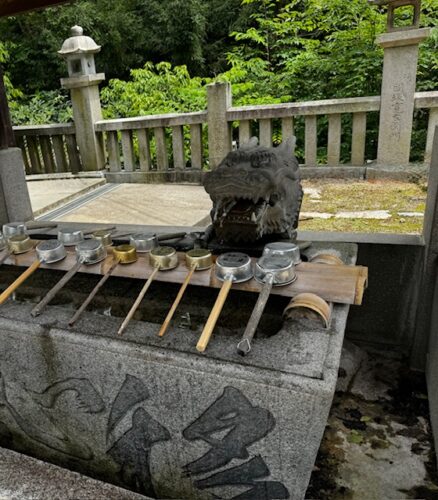
The temple fountain sports a ferocious looking spigot!
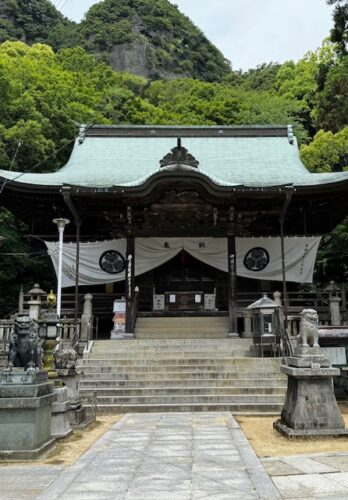
The main hall.
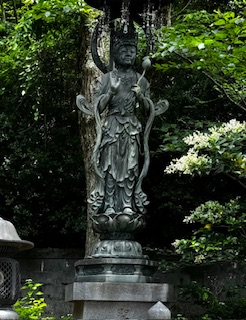
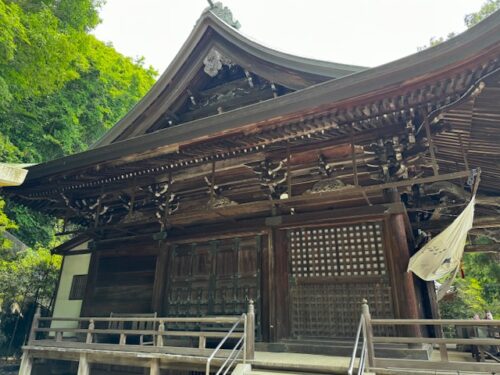
Temple gate.
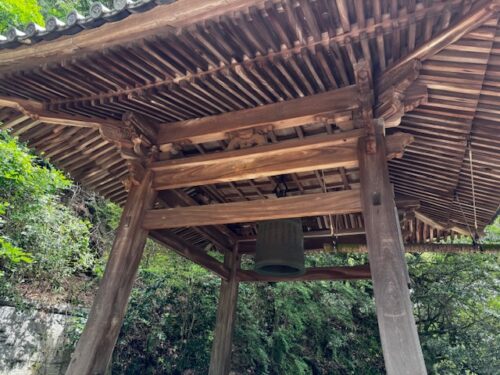
The Bell Hall was built in the 3rd year of Kansei (1791). The bell was provided for the war effort during WWII. It was revived and inscribed with this calligraphy:
I’m going to go to the fin of the watatsumi.
– Yaichi Aizu
The sound of this bell, which contains the wish for peace and tranquility, means that it will echo to the fins of the fish in the sea.
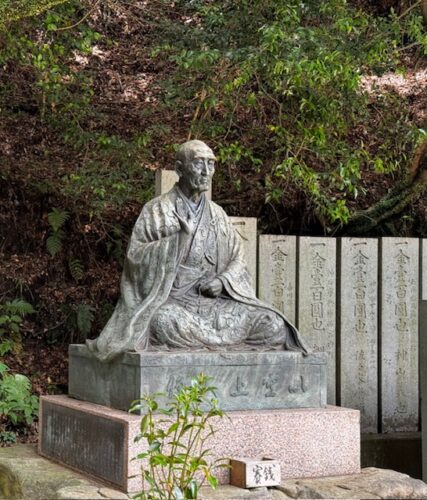
The “wood food” statue is to the practice of eating nuts and grass without eating meat or grains.
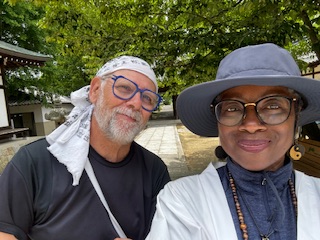
Guess who? Remember that ohenro on the cable car?
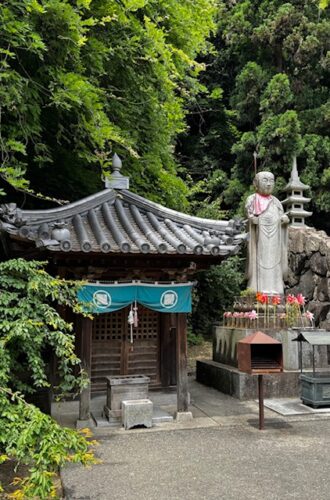
Jizo-do for children, travelers, and better eyesight.
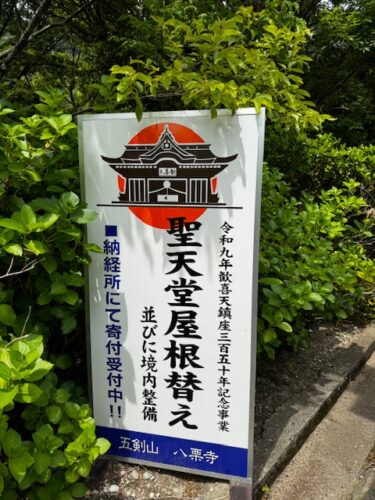
Campaign to raise money for a new roof!
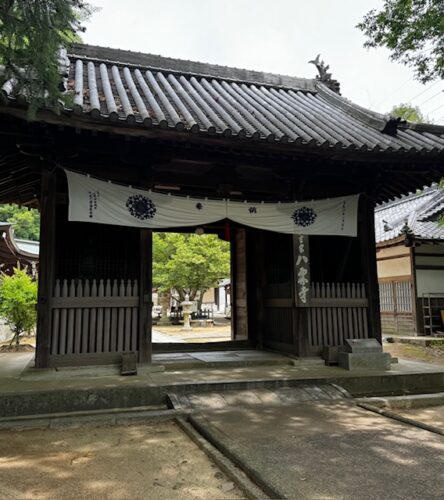
Temple gate.
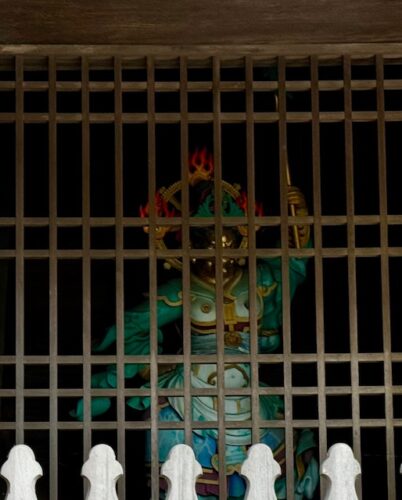
And the colorful Nio guardians inside.
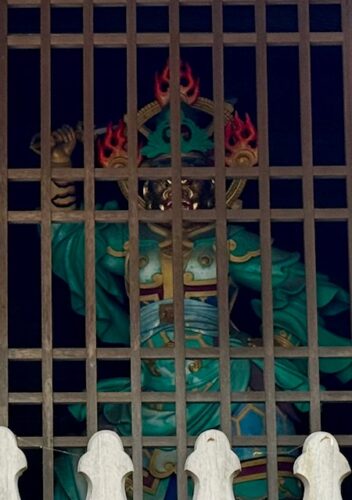
Back to the cable car station
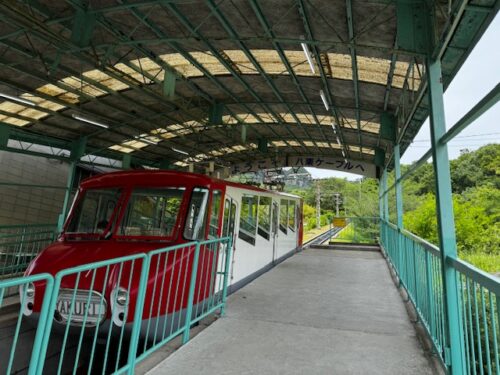
The cable car is ready to leave the station for the return trip to Takamatsu City.
Operations were shut down during WWII. It reopened in 1964 for the Tokyo Olympics.
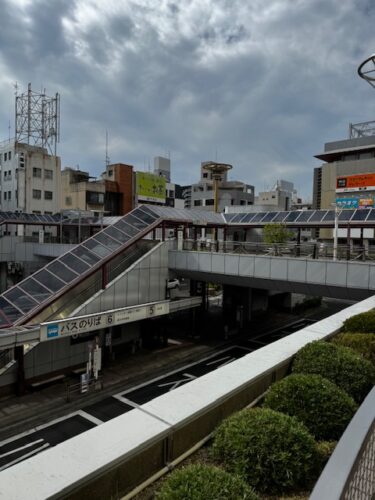
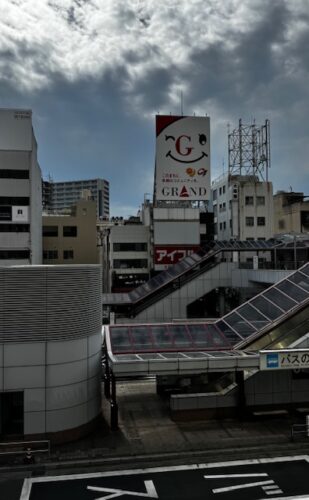
Urban hostel
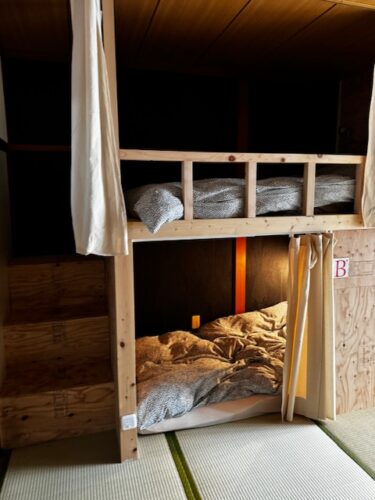
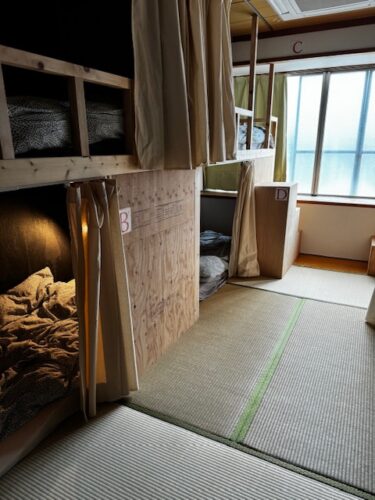
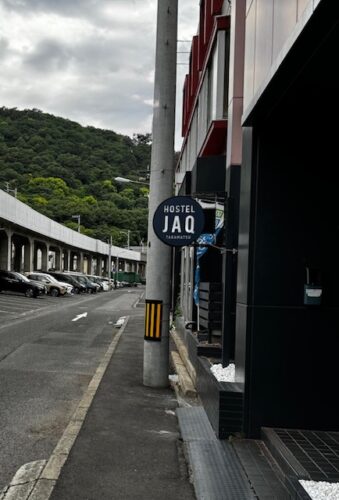
See you next time.
Baadaye and Mata Ne (またね)
Shirley J ♥️
This and several posts this summer chronicle my pilgrimage in Japan where I am walking the 1200 kilometer-long Shikoku 88 temple pilgrimage. Read my announcement here.

T85
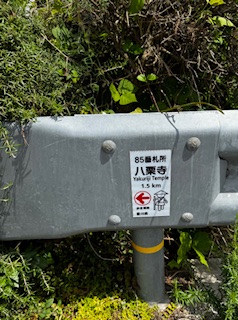
2 thoughts on “🌸 Noire Henro-san: What Would You Do?”
I don’t think there is any shame in taking a ride if you need to. Or for that matter, even if you don’t. It’s not the same experience as walking, but that doesn’t mean it’s not the right experience for you today.
This is an age-old issue that brings out the best and the worst of pilgrims no matter the path. I stay in my own lane – I said it – and go how I need to go. Arigato gozaimasu. 🌸
Comments are closed.